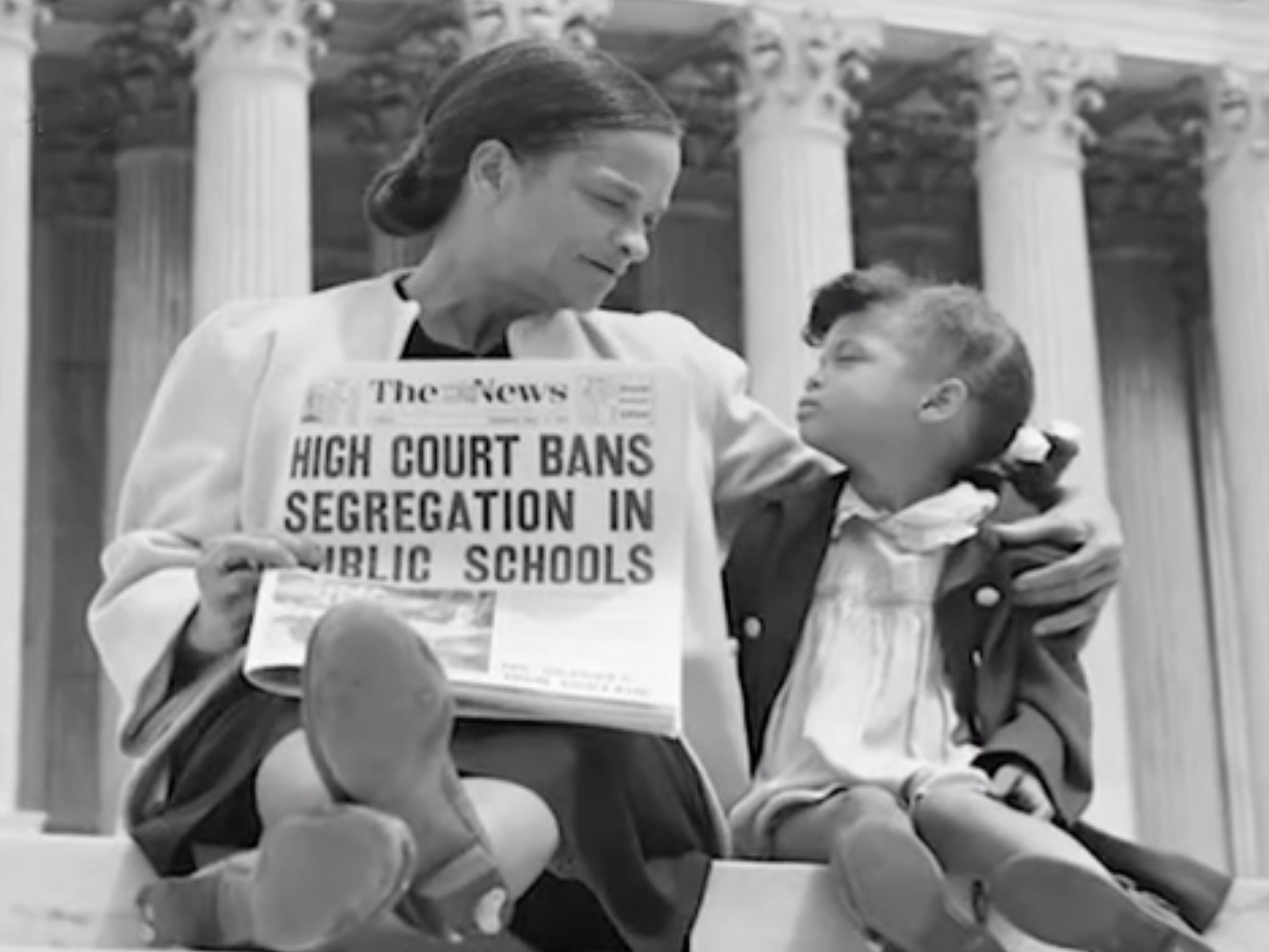
- Film
Docs: “Eyes on the Prize” Highlights Social Progress Made, Plus Uncomfortable Parallels to Present Day
The American Civil Rights movement is an enormous topic, at once a vital part of the history of the United States and also tremendously difficult to distill for those who didn’t actually live some portion of it, because of age or a different country of origin. Thankfully, in celebration of Black History Month, Eyes on the Prize, the trenchant, 14-hour, two-part, Peabody- and Emmy Award-winning documentary series created and executive produced by Henry Hampton, is receiving a deserved boost in profile.
Telling its story in six hours, 1987s America’s Civil Rights Years: 1954-1965 chronicles the turbulent period between the United States Supreme Court ruling in Brown v. Board of Education through the legislative passage of the Civil Rights Act and the iconic marches from Selma to Montgomery in the wake of the murder of Jimmie Lee Jackson. The second part, America at the Racial Crossroads: 1965-1985, expands upon this theme. Consisting of eight episodes that originally aired in 1990, it investigates the national emergence of Malcolm X and a more defined black consciousness through the consolidation and awakened mainstreaming of African American political power, as embodied by the 1983 election of Harold Washington as the first Black mayor of Chicago.
One of the most eye-opening and utterly essential American nonfiction works of the past half-century — equal parts gripping historical illumination and enlightening educational tool — Eyes on the Prize benefits from the sparse narration, a shrewdly curated roster of interviewees, and keen editorial judgment. Comprehensive without becoming overwhelming, its smartly apportioned narrative allows for the interconnected nature of events within the broader movement to come into focus naturally.
It is the documentary’s first part, however, slated for rebroadcast throughout this month on PBS and available internationally on HBO Max as well as other streaming platforms, which carries an even starker resonance and relevance when compared to the contemporary news. It’s true that America’s Civil Rights Years: 1954-1965 starts with a focus on literal segregation. But in spotlighting everything from institutional discrimination and disenfranchisement to ugly nativism and racist attacks, the series summons forth a sense of eerie familiarity with many arguments and actions being made against advances in social equality in the present day.
Sustained non-violent protest only works in a reliably moral climate and given the inherent immorality of the system of segregation, as well as its deep roots, one of the things Eyes on the Prize doesn’t shy away from or refute is that there was, sadly, bound to be some terrible physical cost associated with forcing the United States to confront its original sin. It is also enormously to the series’ credit that it doesn’t ignore or cover up genuine conflict in philosophy, even if seemingly microcosmic, between major civil rights organizing entities like the Student Nonviolent Coordinating Committee (SNCC) and the Southern Christian Leadership Council (SCLC), which was co-founded by Dr. Martin Luther King, Jr. These differences are integral to understanding and more fully appreciate what was accomplished in the Civil Rights Era.
Some of the program’s most piercing moments highlight horrors on which we have largely, if not entirely, turned the page in the 21st century — shocking and upsetting stories of lynching and murders, from that of Emmett Till to that of Medgar Evers. Many of the moments which most linger with a 21st-century viewing, however, also evoke in parallel the great length of the arc of the moral universe of which minister Theodore Parker once spoke. The types of attacks may differ, but the words behind them have significant overlap with the assaults against equity and progress that are a regular part of the domestic news cycle.
The constant counsel of “gradualism” always urged to Dr. King and other civil rights leaders as the best way to resolve America’s ails, as if not acknowledging out loud the full ugliness of America’s history, recalls the manner in which critical race theory is now lambasted for allegedly demonizing all whites or making them too uncomfortable.
The use of coded language (for instance, when Southern segregationist politicians talk about “maintaining our way of life”) could be transcribed literally verbatim to the social media accounts of any number of right-wing politicians or pundits who eagerly wrap themselves in “culture war” cloaks.
The angry denunciation of simple entreaties for equality as somehow undermining traditional American values summons forth not-too-distant memories of former President Donald Trump calling those, like Colin Kaepernick, who would simply kneel in silent protest during the national anthem “sons of bitches,” and encouraging their uniform firing or even the use of violence against them.
Most especially, brutal campaigns of voter suppression inclusive of not only physical intimidation and poll taxes but also a rich history of bureaucratic hurdles and measures (including empowering local election officials to decide arbitrarily who had the right to vote) can be easily seen as the forebears of present-day efforts to diminish ballot access, to twist and contort election law very purposefully to exclude certain groups of individuals.
In sum, Eyes on the Prize highlights the manner in which, then as now, schools, churches, and myriad other public places and spaces have always been part of the battleground of progress within the American experiment — despite the discomfort and inconvenience that can bring to those in positions of power or privilege. Efforts to control the means and mechanisms of protest, to frame them as outside of “proper” political channels, or to erode, diminish or outright strip dissenters of their voices and democratic rights must be seen and called out for what they are: intellectually dishonest and morally deficient attempts to prop up dishonorable systems.

